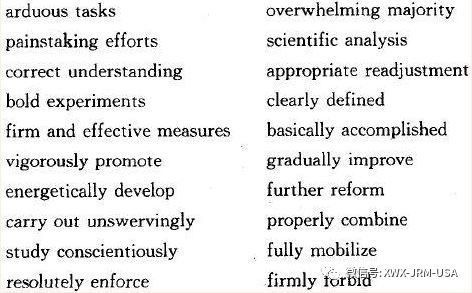- vscode remote-ssh 拓展免密访问 linux虚拟机
前置步骤,在linux安装好ssh并且win可以使用密码登录linuxsudoaptinstallopenssh-server-y在win上检查密钥是否存在检查公钥和私钥cat~/.ssh/id_rsa.pubcat~/.ssh/id_rsa如果不存在,重新生成ssh-keygen-trsa-b4096重新执行cat~/.ssh/id_rsa.pub将公钥的内容粘贴到linux下~/.ssh/au
- 深度剖析:OPENPPP2 libtcpip 实现原理与架构设计
liulilittle
网络智能路由器c++开发语言tcptcp/ip通信
️一、核心架构设计(可视化图表)1.1整体架构图物理网络TAP/TUN设备原始数据包libtcpip输入层LWIP协议栈Netstack转换层Boost.AsioSocket目标服务libtcpip输出层1.2分层架构图内核空间用户空间内核网络栈IP协议处理网络接口层TCP/UDP协议栈Socket转换层系统Socket接口物理网络⚙️二、LWIP协议栈集成剖析2.1LWIP定制化实现//内存管理
- 猎板 PCB 微孔技术:构建 5G 通信设备高效运行的坚实底座
猎板PCB黄浩
5G
5G通信以其高速率、低时延、大连接的特性重塑着数字世界的格局,而作为5G设备核心部件的PCB,其性能直接影响通信质量。猎板PCB凭借对微孔技术的深度钻研与创新实践,以高精度、高可靠性的微孔加工工艺,为5G通信设备的高效稳定运行筑牢根基。一、5G时代PCB微孔面临的新挑战5G通信频段的高频化与信号传输的高速化,使得PCB的布线复杂度大幅提升。0.1mm-0.15mm的微孔成为实现多层互联的基础,但微
- 使用LIMIT + OFFSET 分页时,数据重复的风险
码傻啦弟
软件开发oracle数据库服务器
在使用LIMIT+OFFSET分页时,数据重复的风险不仅与排序字段的唯一性有关,还与数据变动(插入、删除、更新)密切相关。以下是详细分析:一、数据变动如何导致分页异常1.插入新数据场景:用户在浏览第1页时,数据库插入了新记录。问题:新记录可能会"挤入"已浏览过的页面,导致后续页出现重复数据。示例:sql--初始数据(按ID排序)IDName1Alice2Bob3Charlie--第1页:LIMIT
- 如何用 Python 实现模拟木星的运行轨道、自转、公转
wh3933
python开发语言
用Python来模拟木星的轨道运行、自转和公转是一个非常有趣且富有挑战性的项目。这需要结合天文学知识和编程技巧。我们将使用VPython这个库来实现这个模拟。VPython非常适合创建简单的3D物理场景和动画,它的语法直观,能够让我们快速地将物理概念转化为可视化的三维模型。在开始之前,请确保您已经安装了VPython。如果尚未安装,可以通过pip进行安装:pipinstallvpython模拟思路
- Tomcat镜像实战:掌握Dockerfile的编写以及发布项目
hunjinYang
Linuxtomcatdocker
1.为什么选择Docker部署Tomcat?在传统的JavaWeb项目部署中,我们通常需要手动安装JDK、配置Tomcat环境变量、手动部署WAR包,部署过程繁琐、不可重复、环境易出错。而Docker的出现彻底改变了这一局面。本博客将通过一个完整的Tomcat镜像构建与部署实例,带你逐步掌握以下技能:编写自己的Dockerfile构建定制化的Tomcat镜像(包含JDK与Tomcat)在容器中运行
- Podman与Docker详细比较:从原理到使用
Podman与Docker详细比较:从原理到使用在容器化技术领域,Docker曾长期占据主导地位,但近年来Podman作为一款新兴的容器引擎逐渐受到关注。本文将从原理、使用等多个方面对Podman和Docker进行详细比较,帮助读者更好地了解两者的异同,以便在实际应用中做出合适的选择。一、原理比较1.容器引擎架构Docker采用客户端-服务器(C/S)架构,存在一个常驻后台的守护进程(docker
- 如何在postman中动态请求k8s中的pod ip(基于nacos)
&如歌的行板&
kubernetes容器云原生
本文方式基于注册中心是nacos.1.找到nacos中请求地址打开nacos管理页面,找到服务管理,打开控制台,随便找到一个服务,找下面这个地址https://xxxxx.com/nacos/v1/ns/catalog/instances?&serviceName=xxxxx&clusterName=DEFAULT&groupName=dev&pageSize=10&pageNo=1&namesp
- python输出
小郭爱吃糖
python开发语言
Python基础1.1基本的输出函数内置的函数print语法:print(输出内容)print()函数完整的语法格式print(value,……,sep="",end="\n",file=None)示例:a=50b=100print(90)print(a)print(a*b)print('HelloWorld')print("HelloWorld")print("""HelloWorld""")1
- VUE2双向绑定的原理
许先森森
VUE2javascript前端vue.jsvue双向绑定vue
文章目录VUE2双向绑定的原理1.什么是双向绑定2.双向绑定的原理2.1ViewModel的重要作用2.2双向绑定的流程3.双向绑定的实现3.1data响应化处理3.2Compile编译3.3依赖收集VUE2双向绑定的原理1.什么是双向绑定讲双向绑定先讲单项绑定,啥叫单项绑定,就是一句话就是通过Model去改变View,再直白点,就是通过js代码把数据改变后,html视图也跟着变化那双项绑定就很好
- 用PyTorch实现MNIST手写数字识别
MNIST包含70,000张手写数字图像:60,000张用于培训,10,000张用于测试。图像是灰度的,28x28像素的,并且居中的,以减少预处理和加快运行。1、导入相关库importtorchimporttorchvisionfromtorch.utils.dataimportDataLoaderimporttorch.nnasnnimporttorch.nn.functionalasFimpo
- C#安装使用教程
小奇JAVA面试
安装使用教程c#开发语言
一、C#简介C#(读作C-Sharp)是微软开发的现代化、面向对象的编程语言,运行在.NET平台之上。它语法简洁、安全,广泛用于桌面应用、Web开发、游戏开发(Unity)以及跨平台开发。二、C#应用场景Windows桌面应用程序(WinForms、WPF)Web应用(ASP.NET)游戏开发(Unity3D)移动开发(Xamarin、MAUI)云服务、API开发控制台程序、自动化工具三、安装开发
- 【C++ 内存管理】静态分配和动态分配
【C++内存管理】静态分配和动态分配_静态分配内存和动态分配内存-CSDN博客1.静态分配定义:在编译阶段确定内存大小和生命周期,由编译器自动分配和释放。特点:①分配时机:程序启动时分配,程序结束时释放。②内存区域:数据段(全局变量或者静态变量)和栈区。③生命周期:与程序或模块的执行周期一致。④大小固定:内存大小在编译时已知,不可动态调整。⑤无需手动管理:由编译器自动释放。2.动态分配定义:在程序
- ubuntu20安装ros foxy和ros noetic以及turtlebot3
ubuntu20镜像制作U盘启动用UUI,用UltraISO一直没有成功1,安装两个版本的ROS,均可以先添加源,然后安装desktop版的方式安装2,其他依赖安装常规说明安装3,cartographer安装1)cartographer官网提供的是ros1上的安装教程,对于ros2已经可以很方便得用apt-get的方式安装参考:https://ubuntu.com/blog/simulate-th
- ASP.NET Web程序设计——WebPages
勤奋的菜鸟a
ASP.NETweb程序设计小笔记asp.net
概述:移动互联网(MobileInternet,简称MI)是一种通过智能移动终端,采用移动无线通信方式获取业务和服务的新兴业务移动互联网被称为下一代互联网Web3.0移动互联网具有几个鲜明的特性:(1)便捷性和便携性(2)网络的局限性(3)即时性和精确性ASP.NETWebForms技术带来的负面效应:(1)由于控件封装了很多东西,开发者很难了解这背后的HTML是如何运作的;(2)容易得到一个包含
- Golang学习笔记:协程
夜以冀北
golang学习
Golang学习笔记参考文档一链接:https目录一.协程用在哪里?协程需要解决什么问题?二.协程的框架(Linux的例子)三.如何在多种状态高效切换?四.进程、线程和协程之间的联系五.协程是如何工作的?六.协程与golang的关系一.协程用在哪里?协程需要解决什么问题?对于开发人员而言,客户端和服务器是熟知的对象,在这两个对象上都可以运用到协程。客户端向服务器端请求数据,如果是用线程来实现这个过
- ubuntu没有网络
突然发现Ubuntu连不上网络,右上角也没有网络图标;打开终端,运行命令:sudoservicenetwork-managerstopsudogedit/var/lib/NetworkManager/NetworkManager.state更改打开的文件里的内容:将NetworkingEnabled=false改为NetworkingEnabled=true保存退出后,在终端运行命令:sudose
- golang的协程实现-goroutine
大口吃饭大口吐
gogolang
我们从调度上声明线程与goroutine的区别cpu已经通过分配时间,自带调度器实现切换时间片帮我们解决了多程序(任务)执行问题,在此基础上推演出更小单位多线程:多线程的执行依赖os(操作系统)的调度分配,操作系统促使硬件调度时钟,隔个一段时间发送一个信号到cpu中,cpu结束当前执行线程的函数(程序)并将执行信息从寄存器保存到内存中,再查看线程清单中接下来要继续执行的线程(执行过程:内存中取出来
- 手机评论管理系统中奖秀晒图源码本套晒图源码(源码下载)
手机评论管理系统中奖秀晒图源码本套晒图源码采用mysql+html使用说明:测试环境:Nginx+PHP7.0+MySQL5.6评论管理后台访问:http://你的域名/review-admin.html评论列表首页:http://你的域名/mskhj.html源码下载:https://download.csdn.net/download/m0_66047725/91273788更多资源下载:关注
- ASP.NET Web Pages - 教程
samFuB
asp.net前端后端
ASP.NET是一个使用HTML、CSS、JavaScript和服务器脚本创建网页和网站的开发框架。ASP.NET支持三种不同的开发模式:WebPages(Web页面)、MVC(ModelViewController模型-视图-控制器)、WebForms(Web窗体):本教程介绍WebPages。WebPagesMVCWebForms从何入手?多数开发人员学习一个新技术,是从查看运行实例开始的。通
- Python 中 Pendulum 库的详细使用:更精确的日期时间处理
数据知道
python3案例和总结python开发语言Pendulum库
文章目录一、Pendulum概述1.1Pendulum介绍1.2安装Pendulum1.3注意事项二、基本使用2.1创建Pendulum对象2.2格式化输出2.3时间运算三、高级使用3.1时区处理3.2时间间隔3.3日期比较四、实际应用案例4.1日志时间处理4.2会议时间提醒4.3工作日计算4.4Pendulum与datetime互操作一、Pendulum概述1.1Pendulum介绍Pendul
- python库 arrow 库的各种案例的使用详解(更人性化的日期时间处理)
数据知道
python3案例和总结python开发语言时间处理
文章目录一、arrow概述1.1arrow介绍1.2安装arrow1.3注意事项二、基本使用2.1创建Arrow对象2.2格式化输出2.3时间运算三、高级功能3.1时区处理3.2时间范围3.3时间间隔四、实际应用案例4.1日志时间处理4.2会议时间提醒4.3国际化时间显示5.Arrow与datetime互操作一、arrow概述1.1arrow介绍Arrow是一个Python库,提供了比标准库dat
- ASP.NET Web Pages 教程:从入门到精通
KrDebugging
asp.net前端后端编程学习
ASP.NETWebPages是一种用于构建动态网页的技术,它结合了传统的HTML、CSS和JavaScript,以及强大的服务器端编程语言C#。本教程将带您逐步学习ASP.NETWebPages的基础知识,并通过示例代码演示如何创建交互性强、功能丰富的网页应用程序。环境设置在开始学习ASP.NETWebPages之前,您需要进行以下环境设置:安装VisualStudio:您可以从Microsof
- JavaScript中==和===的区别,以及应用场景
小熊哥^--^
前端javascript前端开发语言
比较操作符==与===的区别==是一个等于操作符,如果操作数相等就会返回true,但==涉及JavaScript中的隐式转换。在使用==时会先进行类型转换,再判断操作数是否相等。以下是示例:console.log(true==1);//trueconsole.log("1"==true);//trueconsole.log("55"==55);//trueconsole.log(0==false)
- Kafka
小熊哥^--^
kafka分布式
一、什么是Kafka?Kafka的主要用途?Kafka是一个分布式流处理平台,是Apache的一个顶级项目,它被设计用于高吞吐量,分布式、持久性的数据流处理。Kafka实现了一套非常高效的一种发布订阅模型,应用场景非常广泛,比如日志聚合(收集日志)、数据流处理、数据仓库集成(传输数据到数据仓库)、应用程序集成(作为消息中间件来实现异步通信)、流媒体处理(列如实时监控,事件驱动的应用程序)二、top
- Docker 容器编排原理与使用详解
许先森森
技术杂文docker容器运维容器编排KubernetesDockerCompose
Docker容器编排原理与使用详解一、容器编排概述在容器技术领域,Docker容器以其轻量化、可移植性和快速部署的特性,极大地改变了应用程序的开发和部署方式。然而,当应用规模逐渐扩大,涉及多个容器的协同工作、资源管理、故障恢复等问题时,单纯使用Docker命令管理容器就显得力不从心。此时,容器编排技术应运而生。容器编排是指对多个容器进行自动化管理和协调的过程,它能够实现容器的部署、调度、伸缩、网络
- Docker-compose容器编排
⼀、Docker-compose定义1.dockercompose是docker官⽅的开源项⽬,负责实现对docker容器集群的快速编排(容器,依赖,⽹络,挂载。。)2.compose是docker公司推出的⼀个⼯具软件,可以管理多个docker容器组成的应⽤3.需要定义⼀个YAML格式的配置⽂件docker-compose.yml,写好多个容器之间的调⽤关系4.使⽤compose的步骤、5.1.
- 人工智能动画展示人类的特征
AGI大模型与大数据研究院
AI大模型应用开发实战javapythonjavascriptkotlingolang架构人工智能
人工智能,动画,人类特征,情感识别,行为模拟,机器学习,深度学习,自然语言处理1.背景介绍人工智能(AI)技术近年来发展迅速,已渗透到生活的方方面面。从智能语音助手到自动驾驶汽车,AI正在改变着我们的世界。然而,尽管AI技术取得了令人瞩目的成就,但它仍然难以完全模拟人类的复杂行为和特征。人类的特征是多方面的,包括情感、认知、社交和创造力等。这些特征是人类区别于其他生物的重要标志,也是人类社会文明发
- 零基础数据结构与算法—— 第三章:高级数据结构-总结
qqxhb
零基础数据结构与算法小学生编程算法数据结构算法树堆哈希表图
3.1树(上)3.1树(下)3.2堆(Heap)3.3哈希表(HashTable)3.4图(Graph)3.5高级树结构3.6本章小结在本章中,我们深入学习了几种重要的高级数据结构,这些数据结构在解决复杂问题时具有强大的能力。让我们回顾一下本章的主要内容:1.堆(Heap)堆是一种特殊的完全二叉树,具有堆序性质。我们学习了:最大堆和最小堆的概念和性质堆的基本操作(插入、删除堆顶、获取堆顶、构建堆)
- golang 协程 如何中断和恢复
sun007700
golang数据库开发语言
Go语言通知协程退出(取消)的几种方式-知乎GoLang之goroutine底层系列二(goroutine的创建、让出、恢复)_golanggoroutine-CSDN博客在Go语言中,协程(也称为goroutine)是通过go关键字启动的轻量级线程。由于goroutine的调度是由Go运行时管理的,直接停止一个正在执行的goroutine是不可能的,这与操作系统线程不同。但是,你可以通过一些策略
- 解读Servlet原理篇二---GenericServlet与HttpServlet
周凡杨
javaHttpServlet源理GenericService源码
在上一篇《解读Servlet原理篇一》中提到,要实现javax.servlet.Servlet接口(即写自己的Servlet应用),你可以写一个继承自javax.servlet.GenericServletr的generic Servlet ,也可以写一个继承自java.servlet.http.HttpServlet的HTTP Servlet(这就是为什么我们自定义的Servlet通常是exte
- MySQL性能优化
bijian1013
数据库mysql
性能优化是通过某些有效的方法来提高MySQL的运行速度,减少占用的磁盘空间。性能优化包含很多方面,例如优化查询速度,优化更新速度和优化MySQL服务器等。本文介绍方法的主要有:
a.优化查询
b.优化数据库结构
- ThreadPool定时重试
dai_lm
javaThreadPoolthreadtimertimertask
项目需要当某事件触发时,执行http请求任务,失败时需要有重试机制,并根据失败次数的增加,重试间隔也相应增加,任务可能并发。
由于是耗时任务,首先考虑的就是用线程来实现,并且为了节约资源,因而选择线程池。
为了解决不定间隔的重试,选择Timer和TimerTask来完成
package threadpool;
public class ThreadPoolTest {
- Oracle 查看数据库的连接情况
周凡杨
sqloracle 连接
首先要说的是,不同版本数据库提供的系统表会有不同,你可以根据数据字典查看该版本数据库所提供的表。
select * from dict where table_name like '%SESSION%';
就可以查出一些表,然后根据这些表就可以获得会话信息
select sid,serial#,status,username,schemaname,osuser,terminal,ma
- 类的继承
朱辉辉33
java
类的继承可以提高代码的重用行,减少冗余代码;还能提高代码的扩展性。Java继承的关键字是extends
格式:public class 类名(子类)extends 类名(父类){ }
子类可以继承到父类所有的属性和普通方法,但不能继承构造方法。且子类可以直接使用父类的public和
protected属性,但要使用private属性仍需通过调用。
子类的方法可以重写,但必须和父类的返回值类
- android 悬浮窗特效
肆无忌惮_
android
最近在开发项目的时候需要做一个悬浮层的动画,类似于支付宝掉钱动画。但是区别在于,需求是浮出一个窗口,之后边缩放边位移至屏幕右下角标签处。效果图如下:
一开始考虑用自定义View来做。后来发现开线程让其移动很卡,ListView+动画也没法精确定位到目标点。
后来想利用Dialog的dismiss动画来完成。
自定义一个Dialog后,在styl
- hadoop伪分布式搭建
林鹤霄
hadoop
要修改4个文件 1: vim hadoop-env.sh 第九行 2: vim core-site.xml <configuration> &n
- gdb调试命令
aigo
gdb
原文:http://blog.csdn.net/hanchaoman/article/details/5517362
一、GDB常用命令简介
r run 运行.程序还没有运行前使用 c cuntinue
- Socket编程的HelloWorld实例
alleni123
socket
public class Client
{
public static void main(String[] args)
{
Client c=new Client();
c.receiveMessage();
}
public void receiveMessage(){
Socket s=null;
BufferedRea
- 线程同步和异步
百合不是茶
线程同步异步
多线程和同步 : 如进程、线程同步,可理解为进程或线程A和B一块配合,A执行到一定程度时要依靠B的某个结果,于是停下来,示意B运行;B依言执行,再将结果给A;A再继续操作。 所谓同步,就是在发出一个功能调用时,在没有得到结果之前,该调用就不返回,同时其它线程也不能调用这个方法
多线程和异步:多线程可以做不同的事情,涉及到线程通知
&
- JSP中文乱码分析
bijian1013
javajsp中文乱码
在JSP的开发过程中,经常出现中文乱码的问题。
首先了解一下Java中文问题的由来:
Java的内核和class文件是基于unicode的,这使Java程序具有良好的跨平台性,但也带来了一些中文乱码问题的麻烦。原因主要有两方面,
- js实现页面跳转重定向的几种方式
bijian1013
JavaScript重定向
js实现页面跳转重定向有如下几种方式:
一.window.location.href
<script language="javascript"type="text/javascript">
window.location.href="http://www.baidu.c
- 【Struts2三】Struts2 Action转发类型
bit1129
struts2
在【Struts2一】 Struts Hello World http://bit1129.iteye.com/blog/2109365中配置了一个简单的Action,配置如下
<!DOCTYPE struts PUBLIC
"-//Apache Software Foundation//DTD Struts Configurat
- 【HBase十一】Java API操作HBase
bit1129
hbase
Admin类的主要方法注释:
1. 创建表
/**
* Creates a new table. Synchronous operation.
*
* @param desc table descriptor for table
* @throws IllegalArgumentException if the table name is res
- nginx gzip
ronin47
nginx gzip
Nginx GZip 压缩
Nginx GZip 模块文档详见:http://wiki.nginx.org/HttpGzipModule
常用配置片段如下:
gzip on; gzip_comp_level 2; # 压缩比例,比例越大,压缩时间越长。默认是1 gzip_types text/css text/javascript; # 哪些文件可以被压缩 gzip_disable &q
- java-7.微软亚院之编程判断俩个链表是否相交 给出俩个单向链表的头指针,比如 h1 , h2 ,判断这俩个链表是否相交
bylijinnan
java
public class LinkListTest {
/**
* we deal with two main missions:
*
* A.
* 1.we create two joined-List(both have no loop)
* 2.whether list1 and list2 join
* 3.print the join
- Spring源码学习-JdbcTemplate batchUpdate批量操作
bylijinnan
javaspring
Spring JdbcTemplate的batch操作最后还是利用了JDBC提供的方法,Spring只是做了一下改造和封装
JDBC的batch操作:
String sql = "INSERT INTO CUSTOMER " +
"(CUST_ID, NAME, AGE) VALUES (?, ?, ?)";
- [JWFD开源工作流]大规模拓扑矩阵存储结构最新进展
comsci
工作流
生成和创建类已经完成,构造一个100万个元素的矩阵模型,存储空间只有11M大,请大家参考我在博客园上面的文档"构造下一代工作流存储结构的尝试",更加相信的设计和代码将陆续推出.........
竞争对手的能力也很强.......,我相信..你们一定能够先于我们推出大规模拓扑扫描和分析系统的....
- base64编码和url编码
cuityang
base64url
import java.io.BufferedReader;
import java.io.IOException;
import java.io.InputStreamReader;
import java.io.PrintWriter;
import java.io.StringWriter;
import java.io.UnsupportedEncodingException;
- web应用集群Session保持
dalan_123
session
关于使用 memcached 或redis 存储 session ,以及使用 terracotta 服务器共享。建议使用 redis,不仅仅因为它可以将缓存的内容持久化,还因为它支持的单个对象比较大,而且数据类型丰富,不只是缓存 session,还可以做其他用途,一举几得啊。1、使用 filter 方法存储这种方法比较推荐,因为它的服务器使用范围比较多,不仅限于tomcat ,而且实现的原理比较简
- Yii 框架里数据库操作详解-[增加、查询、更新、删除的方法 'AR模式']
dcj3sjt126com
数据库
public function getMinLimit () { $sql = "..."; $result = yii::app()->db->createCo
- solr StatsComponent(聚合统计)
eksliang
solr聚合查询solr stats
StatsComponent
转载请出自出处:http://eksliang.iteye.com/blog/2169134
http://eksliang.iteye.com/ 一、概述
Solr可以利用StatsComponent 实现数据库的聚合统计查询,也就是min、max、avg、count、sum的功能
二、参数
- 百度一道面试题
greemranqq
位运算百度面试寻找奇数算法bitmap 算法
那天看朋友提了一个百度面试的题目:怎么找出{1,1,2,3,3,4,4,4,5,5,5,5} 找出出现次数为奇数的数字.
我这里复制的是原话,当然顺序是不一定的,很多拿到题目第一反应就是用map,当然可以解决,但是效率不高。
还有人觉得应该用算法xxx,我是没想到用啥算法好...!
还有觉得应该先排序...
还有觉
- Spring之在开发中使用SpringJDBC
ihuning
spring
在实际开发中使用SpringJDBC有两种方式:
1. 在Dao中添加属性JdbcTemplate并用Spring注入;
JdbcTemplate类被设计成为线程安全的,所以可以在IOC 容器中声明它的单个实例,并将这个实例注入到所有的 DAO 实例中。JdbcTemplate也利用了Java 1.5 的特定(自动装箱,泛型,可变长度
- JSON API 1.0 核心开发者自述 | 你所不知道的那些技术细节
justjavac
json
2013年5月,Yehuda Katz 完成了JSON API(英文,中文) 技术规范的初稿。事情就发生在 RailsConf 之后,在那次会议上他和 Steve Klabnik 就 JSON 雏形的技术细节相聊甚欢。在沟通单一 Rails 服务器库—— ActiveModel::Serializers 和单一 JavaScript 客户端库——&
- 网站项目建设流程概述
macroli
工作
一.概念
网站项目管理就是根据特定的规范、在预算范围内、按时完成的网站开发任务。
二.需求分析
项目立项
我们接到客户的业务咨询,经过双方不断的接洽和了解,并通过基本的可行性讨论够,初步达成制作协议,这时就需要将项目立项。较好的做法是成立一个专门的项目小组,小组成员包括:项目经理,网页设计,程序员,测试员,编辑/文档等必须人员。项目实行项目经理制。
客户的需求说明书
第一步是需
- AngularJs 三目运算 表达式判断
qiaolevip
每天进步一点点学习永无止境众观千象AngularJS
事件回顾:由于需要修改同一个模板,里面包含2个不同的内容,第一个里面使用的时间差和第二个里面名称不一样,其他过滤器,内容都大同小异。希望杜绝If这样比较傻的来判断if-show or not,继续追究其源码。
var b = "{{",
a = "}}";
this.startSymbol = function(a) {
- Spark算子:统计RDD分区中的元素及数量
superlxw1234
sparkspark算子Spark RDD分区元素
关键字:Spark算子、Spark RDD分区、Spark RDD分区元素数量
Spark RDD是被分区的,在生成RDD时候,一般可以指定分区的数量,如果不指定分区数量,当RDD从集合创建时候,则默认为该程序所分配到的资源的CPU核数,如果是从HDFS文件创建,默认为文件的Block数。
可以利用RDD的mapPartitionsWithInd
- Spring 3.2.x将于2016年12月31日停止支持
wiselyman
Spring 3
Spring 团队公布在2016年12月31日停止对Spring Framework 3.2.x(包含tomcat 6.x)的支持。在此之前spring团队将持续发布3.2.x的维护版本。
请大家及时准备及时升级到Spring
- fis纯前端解决方案fis-pure
zccst
JavaScript
作者:zccst
FIS通过插件扩展可以完美的支持模块化的前端开发方案,我们通过FIS的二次封装能力,封装了一个功能完备的纯前端模块化方案pure。
1,fis-pure的安装
$ fis install -g fis-pure
$ pure -v
0.1.4
2,下载demo到本地
git clone https://github.com/hefangshi/f

